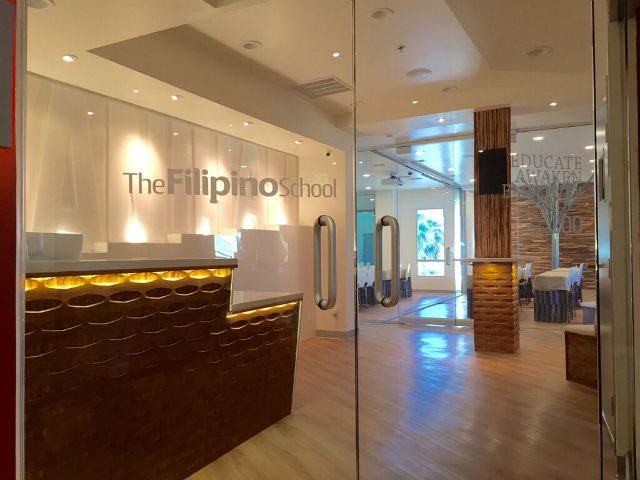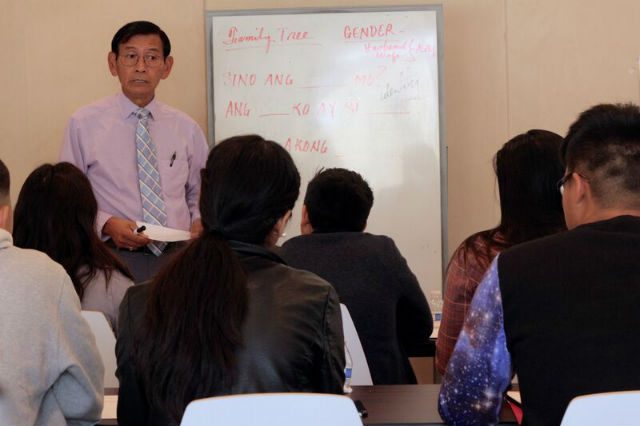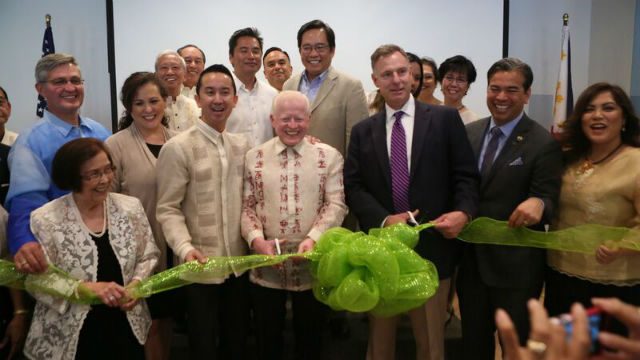SUMMARY
This is AI generated summarization, which may have errors. For context, always refer to the full article.

MANILA, Philippines – Three months after its grand opening, The Filipino School in San Diego plans to make its classes more accessible by putting them online in the fall.
Tony Olaes, co-founder of the school, said they have been filming and recording summer classes in their beta stage for online classes that will be available to high school and college level students later this year.
“We want to get that experience online from a synchronous standpoint where everybody logs in at the same time and an asynchronous standpoint where you don’t have to be online at a certain time, where you can go through the exercises and get an amazing foundation of who you are as a Filipino,” said Olaes.
The move online will not only make TFS more accessible, but will also help the school tap into a greater audience – the Filipino diaspora.
“We want to reach the Filipinos all over the world so that we Filipinos can become one Filipino by learning from one school,” said Carole Caparros, co-founder and administrative manager of TFS.
Online expansion plans

The school first opened its doors to students mid-May to teach Filipino language, history, and culture to Fil-Ams. This has received great responses from students and their parents alike.
“So many people want us to move and build out in their areas in different parts of the country,” Olaes said. “I mean the feedback that we’re getting is like, ‘Finally.’”
However, the classes aren’t very big; the facility is just 2,400 square feet in size. Because the school is still in its beta stage, there are only a limited number of seats available in the classrooms.
“The online portion is the key affordability and scalability of this model,” he told Rappler.
Olaes said when TFS first started, the vision was to put TFS online and to let Fil-Ams lead because they have the financial capacity to.
“We knew that if we just connected people and just gave them a piece of how powerful learning who we are is, all roads would lead back to the Philippines. And when it does, they would transform and they would want to help,” he said.
Classroom experience online

Interaction among students and teachers is a big part of classes at TFS and often helps guide discussions. For example, in one class, students share what they feel being Filipino means to them.
“Everybody gets to share their own point of view and how they grew up and a lot of it is assumptions,” said Olaes. “They realize that a lot of the things they assumed were true [about the Philippines] sometimes aren’t.”
The course director helps facilitate discussion and might explain why a student holds a certain idea or misconception about the Philippines while trying to help them understand why their parents, who emigrated from thePhilippines, might think another way.
Olaes said the online classes might not provide the exact classroom experience, but TFS is using different alternatives to retain the interactive component students have in school.
“There will be videos,” Olaes said. “[Students] will be hearing testimonies of people. And they’ll be able to go on and submit their own point of view as well. We’re trying to make it as easy as possible.”
TFS also has a partnership with Seafood City, one of the larger Filipino seafood grocery chains in the West Coast, to help them expand.
“They have committed space in all their stores, so as we scale up, we’re going to strategically put these classrooms in those stores. The idea is to have this interactiveness in strategic locations throughout the country as we scale,” Olaes explained.
First of its kind
While Caparros admitted that the school may not be the first Filipino school, she said it is unique in the way it approaches how students learn about Filipino culture.
“The emphasis really is the respect for our elders and how to love our country and to be a bayani (hero) to our people. And with that, then we can build a sharing and caring bayanihan spirit (spirit of communal unity).” she said. “In doing that, we can love our country even if we are outside the Philippines.”
Olaes said TFS has “nothing to do with being a business,” but rather helping Filipinos around the world understand who they are and where they come from.
“We felt that if we didn’t make the move now, our children would not make the move and all would be lost,” he said. “The real beauty of who we are is you have to connect Filipinos to the Philippines once and for all and that’s what we’re here to do with the school.” – Rappler.com
Kimberly Go is a Rappler intern.
Add a comment
How does this make you feel?
There are no comments yet. Add your comment to start the conversation.